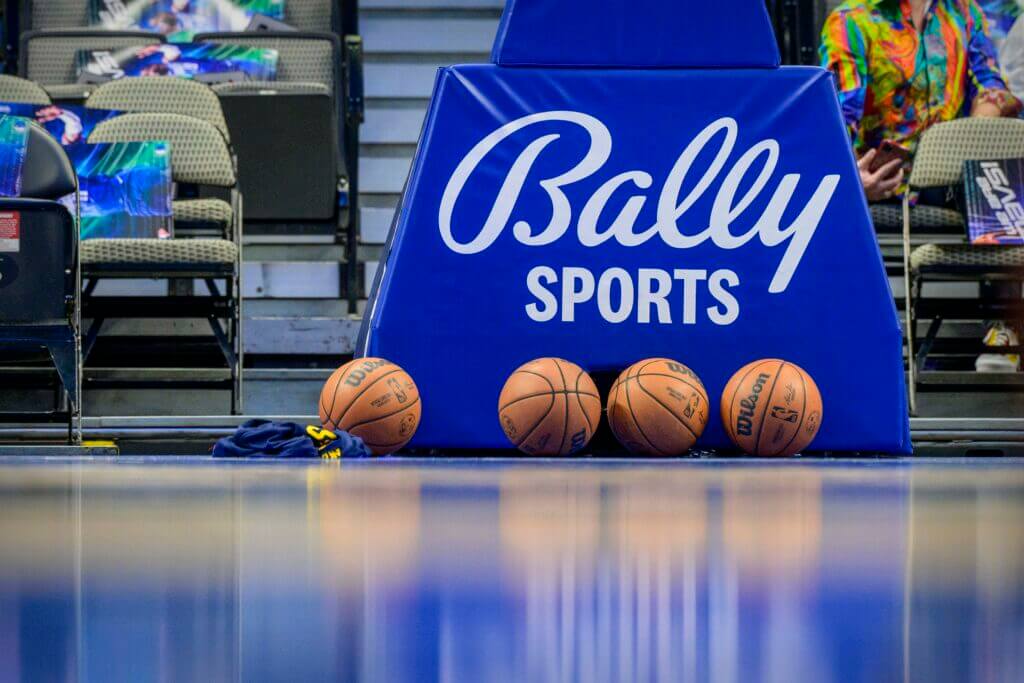As the NBA approaches a new season, releasing its 2023-24 schedule earlier this month and launching matchups to watch for next year, a nettlesome issue continues to surround the league and half of the its team.
Diamond Sports Group, the company that operates 19 Bally Sports regional sports networks across the United States and owns the local television rights for 15 NBA teams, including the Mavericks, Clippers, Cavaliers and Spurs , and others, continue to go bankrupt in the future. court That has caused some uncertainty about how teams will broadcast their games locally in the near future.
Rick Schnall, the new co-owner of the Charlotte Hornets, addressed the situation this month as he was introduced as part of the investment group that bought the franchise this summer. Asked where fans can watch the team this season, he struggled for a definitive answer.
“We really don’t know the answer to that question,” Schnall said. “We’re under contract through the (20)25-26 season with Bally Sports, and we expect them to honor that contract. Obviously they’re in Chapter 11; that’s an ongoing negotiation. The NBA is obviously very concerned and very involved in that. There is a place to watch the Hornets. We think it will be Bally Sports under the terms of the contract, but if not, we have alternative plans.
Currently, there are expectations that the games will be broadcast on the Bally Sports regional sports networks at the start of the season, and the league has been told that Diamond Sports Group has enough capital to fulfill its contracts and to get through the upcoming season, according to it. to sources briefed on the matter who have been granted anonymity so they can speak freely. But the NBA is also starting to work on contingency plans in case there are issues or that expectation doesn’t happen once the regular season starts on Oct. 24.
In the event that the Diamond Sports Group RSNs cannot fulfill their contracts with the teams, the NBA is ready to take over broadcast production and distribution in those markets. The league will then offer a direct-to-consumer streaming option for fans in those markets, as well as some sort of unspecified linear option. That model has already been established in cities like Phoenix and Salt Lake City, where the Suns and Jazz announced deals this summer to move their teams from cable RSNs — and from Bally Sports RSN in the Suns’ case. — and into an over. -the-air broadcast network, along with streaming options. Already in contact with league or team officials at local stations across the country in Bally Sports RSN markets to lay the groundwork in the event of an upset.
There has been some precedent this year for a professional sports league to step in if Diamond can’t meet its obligations. Major League Baseball jumped into broadcasting San Diego Padres games this summer when Diamond stopped broadcasting their games.
The approach between the NBA and Diamond Sports Group does not seem to be as hostile as the company and MLB, and the NBA wants to get through this upcoming season with its RSN contracts, and payments, intact. But there is no guarantee. Diamond tried to stop making full payments to four MLB teams this year, arguing that it had the ability to do so because of the bankruptcy code, but a federal judge blocked that. plan. If Diamond believes that one of its TV contracts with an NBA team is either not part of future plans or not profitable, it can try to do the same under the same argument – even if the The company’s legal battle with MLB is proving unlikely to succeed.
There is also an important difference between Diamond Sports Group’s MLB and NBA deals. The company has digital direct-to-consumer rights for only five of the 14 MLB teams it contracts with, according to bankruptcy filings. It has streaming rights for all NBA teams under contract.
While there is optimism on both sides, there is also a fair share of skepticism.
“It’s a fluid situation,” said one industry source The Athletic.
Diamond Sports Group has had a tough summer elsewhere as well. As bankruptcy proceedings continue, it also sued the Sinclair Broadcasting Groupits parent company, in federal court, alleging that Sinclair improperly siphoned $1.5 billion from Diamond’s RSN business and charged higher management fees after acquiring the Diamond in 2019. As part of its response to the lawsuit, Sinclair said in a court filing that it believes Diamond Sports Group emerged from bankruptcy “There’s nothing to be seen anywhere.” In a statement, a Diamond Sports Group spokesperson said the company is “confident in our legal position” and that Sinclair’s court motion will have no impact on its operations.
(Photo: Jerome Miron / USA Today)
